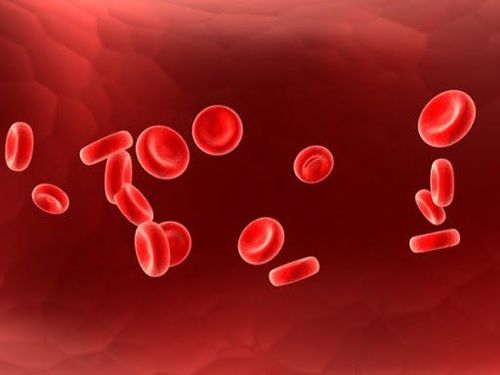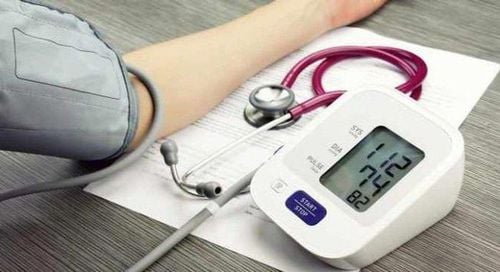Low blood pressure during pregnancy can lead to serious complications, similar to high blood pressure. It is a primary cause of dizziness, fatigue, and fainting in pregnant women. Therefore, monitoring blood pressure levels should be a routine part of prenatal checkups.
1. What is Low Blood Pressure?
Low blood pressure, or hypotension, is identified when systolic blood pressure is below 90 mmHg or diastolic blood pressure is below 60 mmHg. Blood pressure is typically measured on the upper arm just above the elbow, on both the left and right arms. Some women may naturally have low blood pressure without experiencing any fatigue or clinical symptoms. However, low blood pressure during pregnancy refers to hypotension that occurs during pregnancy. This condition is often discovered incidentally during routine prenatal checkups or when clinical symptoms suggest it.
Các dấu hiệu mang thai sớm không phải chỉ mỗi trễ kinh mà còn có rất nhiều dấu hiệu khác như xuất huyết âm đạo, ngực căng tức,… Điểm xem bạn biết được bao nhiêu dấu hiệu mang thai sớm thông qua bài trắc nghiệm này nhé!
2. Causes of Low Blood Pressure During Pregnancy
Pregnancy is a long and complex process during which a woman’s body undergoes numerous changes to adapt to sharing space and nurturing the fetus inside the uterus. Therefore, a woman’s health needs to be regularly monitored and cared for during pregnancy. Blood pressure is one of the basic indicators reflecting the mother’s overall health status, varying according to factors such as diet, lifestyle, psychological stress, and the time of measurement.
Physiologically, during the first half of pregnancy, the mother’s blood pressure is typically maintained at a low level while still ensuring adequate circulation to the placenta to nourish the fetus. This is explained by the dilation of blood vessels, which increases blood flow to the uterus and placenta. However, low blood pressure during pregnancy is not always a physiological condition. Excessively low blood pressure can endanger the fetus's health. Certain poor habits can lead to low blood pressure during pregnancy, such as sudden changes in posture or prolonged bathing. Additionally, certain medical conditions can also cause low blood pressure during pregnancy, including cardiovascular diseases, anemia, infections, bleeding, trauma, kidney disorders, dehydration, vomiting that reduces blood volume, allergic reactions, and side effects of medications.
A concerning consequence of low blood pressure during pregnancy is the risk of the mother fainting due to sudden posture changes, such as moving from sitting or lying down to standing. Injuries sustained from fainting episodes pose a significant risk to the fetus's health. When low blood pressure occurs, blood flow to the placenta decreases, affecting the fetus’s development and potentially causing complications such as intrauterine fetal death, fetal growth restriction, or preterm birth.

3. Symptoms of Low Blood Pressure During Pregnancy
Some pregnant women may have low blood pressure levels but still carry out daily activities and work normally. Others experiencing low blood pressure during pregnancy may display various clinical symptoms, such as:
- Dizziness, blurred vision
- Sweating
- Pale skin
- Fatigue
- Shortness of breath, rapid breathing
- Fainting

4. Managing Low Blood Pressure During Pregnancy
If low blood pressure is due to physiological changes in the early months of pregnancy, no specific treatment is required. Blood pressure levels typically return to normal ranges during the third trimester. However, if blood pressure levels drop excessively, the patient will need emergency treatment. Once the critical phase has passed, the causes of low blood pressure during pregnancy need to be thoroughly identified and addressed. If low blood pressure is suspected to result from the side effects of medications, the doctor may recommend discontinuing or replacing the medication.

5. Preventive Measures for Low Blood Pressure During Pregnancy
Low blood pressure during pregnancy can be prevented with various measures, such as:
- Avoid sudden changes in posture: Blood pressure can drop rapidly if a pregnant woman moves suddenly from lying down or sitting to standing. Therefore, all movements should be slow and gentle. In the morning, it’s recommended to sit up gradually instead of getting up abruptly. If feeling fatigued or about to faint, the pregnant woman should find a place to sit down, rest calmly, and breathe deeply and steadily.
- Maintain a proper diet: Establishing a diet with multiple small meals throughout the day can help prevent low blood pressure during pregnancy. It is essential to include a variety of nutrient-rich foods. Pregnant women should consult their doctor regarding the amount of salt they should consume daily during pregnancy.
- Stay hydrated: Pregnant women need to drink enough water and supplement with fruit juices to provide adequate vitamins and minerals. Avoid beverages that may cause nausea and consider alternatives such as ginger tea or herbal teas to create a sense of comfort and ease.
Low blood pressure during pregnancy can lead to many dangerous complications. Therefore, early detection is crucial to minimize the risk of complications during pregnancy.
To arrange an appointment, please call HOTLINE or make your reservation directly HERE. You may also download the MyVinmec app to schedule appointments faster and manage your reservations more conveniently.








